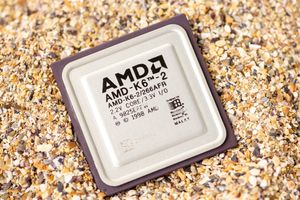
On a day where the broader S&P 500 and Nasdaq Composite indices soared to new all-time record highs, the S&P 500 Healthcare sector presented a compelling, albeit nuanced, narrative of market leadership and resilience. While the overall market sentiment exuded robust optimism, the healthcare sector itself showcased a dynamic interplay of strength, innovation, and strategic positioning, hinting at its potential to steer market momentum even amidst broader economic shifts. This performance underscores the sector's inherent defensive qualities and its capacity for growth, driven by advancements in technology and strategic corporate maneuvers.
Despite some mixed signals in sector-wide metrics, individual healthcare powerhouses and sub-sectors demonstrated significant upward trajectories, contributing disproportionately to market vigor. This targeted strength, particularly in areas leveraging artificial intelligence and innovative medical solutions, suggests a sector that is not merely weathering market fluctuations but actively shaping its direction. The spotlight falls on companies exhibiting strong financial health and those at the forefront of technological integration, signaling a potential paradigm shift in how healthcare companies contribute to overall market stability and growth.
Detailed Sector Dynamics and Key Catalysts
October 7, 2025, witnessed a complex picture within the S&P 500 Healthcare sector. While the Health Care Select Sector SPDR Fund (XLV) showed a predicted fair opening price of $144.38, following a slight dip of -0.483% on October 6, 2025, earlier in the month, as of October 3, 2025, the S&P 500 Health Care (Sector) Price Return had already posted a 1-day increase of 1.13%, a Month-to-Date (MTD) gain of 3.97%, and a Year-to-Date (YTD) return of 5.22%. However, some reports indicated a slight decline of 0.53% within the sector itself on October 7, counterbalanced by significant surges in individual healthcare technology stocks.
The primary drivers of market momentum within the healthcare sector today were innovation and strategic financial positioning. The accelerating adoption of AI tools is ushering in a "renaissance" for the Health Care Technology sector, streamlining provider workflows and enhancing efficiency. Companies like Clover Health (NASDAQ: CLOV), for instance, experienced a 2.48% intraday gain, fueled by AI-driven healthcare innovation and positive earnings anticipation. Counterpart Health's leadership in AI platforms further contributed to a sector-wide interest in the transformative potential of artificial intelligence.
Beyond AI, active exchange-traded funds (ETFs) like the T. Rowe Price Health Care ETF (TMED) showcased robust performance, returning 11.8% over the last three months and 10% over the last month, outperforming its category and segment averages. TMED's success is attributed to its active management, deep fundamental research, and diversified investment across various healthcare industries. The expectation of falling interest rates and continued AI innovation are anticipated to further bolster biotech companies and drive productivity gains across the broader healthcare landscape.
Several companies emerged as leaders, influencing the sector's overall positive trajectory. Thermo Fisher Scientific (NYSE: TMO) was particularly recognized for leading market momentum in the S&P 500, playing a crucial role in influencing healthcare sector activity and contributing to market stability through its diverse offerings across healthcare, laboratory, and biopharma sectors. Other notable mentions include Alignment Healthcare, Inc. (NASDAQ: ALHC), which saw its shares gain 24.8% over the last three months, significantly outpacing the S&P 500's 7.8% advance during the same period.
Companies Navigating the Healthcare Landscape
The current market environment presents both opportunities and challenges for various players within the S&P 500 Healthcare sector. Companies heavily invested in innovative technologies, particularly artificial intelligence and advanced medical solutions, are poised to be significant beneficiaries. Thermo Fisher Scientific (NYSE: TMO), with its diverse portfolio spanning laboratory products, life science solutions, and analytical instruments, stands to win by continuing to support the research and development efforts that underpin many of these advancements. Its integral role in the biopharma and healthcare ecosystem provides a stable foundation for growth.
Other companies demonstrating strong individual momentum, such as Clover Health (NASDAQ: CLOV) and Alignment Healthcare, Inc. (NASDAQ: ALHC), are likely to see continued investor interest. Their focus on AI-driven healthcare innovation and specific market niches, like Medicare Advantage plans, positions them favorably in a landscape increasingly valuing efficiency and personalized care. Large diversified healthcare and pharmaceutical companies like UnitedHealth Group (NYSE: UNH), Johnson & Johnson (NYSE: JNJ), Eli Lilly and Company (NYSE: LLY), and AbbVie (NYSE: ABBV) are also well-positioned due to their established market presence, robust product pipelines, and ability to invest in new technologies and strategic acquisitions.
Conversely, companies that are slower to adapt to technological shifts or face significant regulatory hurdles might experience headwinds. Healthcare providers and traditional service models that do not integrate AI or digital solutions effectively could struggle to maintain competitiveness. While not explicitly identified as "losers" on this specific day, any company within the sector that lags in innovation, particularly in areas like data analytics, personalized medicine, or operational efficiency improvements through AI, could find themselves at a disadvantage in the long run. The increasing emphasis on cost-effectiveness and improved patient outcomes will also put pressure on companies with less efficient operations or less impactful product offerings.
Furthermore, companies facing patent expirations or intense generic competition for key drugs might see their market share and profitability eroded. The pharmaceutical industry, in particular, constantly battles with these challenges, requiring continuous investment in research and development to bring new, innovative therapies to market. The ability to navigate these competitive pressures and maintain a strong intellectual property portfolio will be crucial for sustained success.
Wider Significance and Industry Trends
The S&P 500 Healthcare sector's performance today is more than just a daily market fluctuation; it's a strong indicator of broader industry trends and the evolving landscape of healthcare. The pronounced emphasis on AI-driven solutions is not a fleeting trend but a fundamental shift towards more efficient, data-driven, and personalized healthcare. This integration of AI, from streamlining administrative workflows to enhancing diagnostic capabilities, is poised to redefine operational paradigms across the entire healthcare continuum. The sector's resilience, even amidst broader market concerns, underscores its defensive characteristics, making it an attractive haven for investors seeking stability during economic uncertainties.
This event also highlights the increasing interconnectedness of healthcare with technology. Companies that can effectively leverage digital transformation, including telehealth, remote monitoring, and advanced data analytics, are likely to gain a competitive edge. The positive momentum seen in healthcare technology stocks suggests a continued flow of investment into these areas, potentially accelerating the pace of innovation. This could lead to a ripple effect on competitors, compelling them to increase their R&D spending and strategic partnerships to remain relevant. Furthermore, the focus on AI in healthcare has potential regulatory implications, particularly concerning data privacy, algorithmic bias, and the ethical deployment of autonomous systems, which will require careful navigation by industry players and policymakers alike.
Historically, the healthcare sector has often demonstrated resilience during economic downturns, attributed to the inelastic demand for healthcare services. However, the current trend of technology-driven growth adds a new dimension to this historical precedent, suggesting that the sector's leadership is not solely defensive but also propelled by transformative innovation. Comparisons to past periods of significant technological advancement in healthcare, such as the genomics revolution or the widespread adoption of medical imaging, reveal a similar pattern of sustained growth and market outperformance for companies at the forefront of these changes. This blend of defensive stability and innovative growth positions the healthcare sector as a critical barometer for broader market health and technological progress.
The sustained focus on cybersecurity within the healthcare and life sciences (HCLS) sector, evidenced by a significant decline in data breaches, also speaks to a wider industry trend of prioritizing data integrity and patient trust. This operational resilience, coupled with strategic adaptations like Microsoft's Rural Health Resilience Program, which empowers rural hospitals with AI tools, indicates a proactive approach to addressing systemic challenges and ensuring the long-term viability of healthcare services across diverse settings.
What Comes Next: Navigating Future Horizons
Looking ahead, the S&P 500 Healthcare sector is poised for continued evolution, driven by a confluence of technological advancements, demographic shifts, and evolving regulatory landscapes. In the short term, the market will likely continue to reward companies demonstrating clear pathways to AI integration and those offering innovative solutions that address pressing healthcare needs, such as chronic disease management, personalized medicine, and efficient delivery of care. Investors should anticipate increased M&A activity as larger players seek to acquire specialized tech firms or expand their portfolios in high-growth areas. The emphasis on operational efficiency through AI will also likely lead to further consolidation and optimization across various healthcare segments.
In the long term, the sector's trajectory will be shaped by its ability to adapt to an aging global population, the rising prevalence of chronic conditions, and the ongoing demand for accessible and affordable healthcare. This will necessitate strategic pivots towards preventative care, digital health platforms, and value-based care models. Companies that can effectively leverage real-world data and advanced analytics to demonstrate improved patient outcomes and cost savings will gain a significant competitive advantage. Potential challenges include navigating complex regulatory frameworks, managing escalating R&D costs, and addressing ethical considerations surrounding AI and data privacy.
Emerging market opportunities are abundant, particularly in areas like gene editing, cell therapies, and advanced diagnostics. The ongoing convergence of biotechnology, pharmaceuticals, and technology will continue to create new avenues for growth and innovation. Investors should also watch for the impact of global health initiatives and potential policy changes that could either accelerate or decelerate certain segments of the healthcare market. Potential scenarios range from a sustained period of robust growth driven by continuous innovation and favorable regulatory environments to periods of increased scrutiny and pricing pressures, particularly for novel therapies. The ability of companies to demonstrate both clinical efficacy and economic value will be paramount.
Furthermore, the trend of falling interest rates, coupled with continued AI innovation, is expected to particularly benefit companies in the biotech space, driving productivity gains across the broader healthcare ecosystem. This financial tailwind could fuel further research and development, bringing more groundbreaking treatments and technologies to market.
Comprehensive Wrap-up and Investor Outlook
Today's performance of the S&P 500 Healthcare sector serves as a powerful testament to its enduring significance and dynamic potential within the broader market. Key takeaways include the sector's remarkable resilience in the face of broader market fluctuations, its clear leadership driven by innovation, particularly in AI and digital health, and the robust individual performances of companies like Thermo Fisher Scientific (NYSE: TMO). The sector is not merely a defensive play but an active engine of growth, propelled by a relentless pursuit of technological advancement and operational efficiency.
Moving forward, the healthcare market is poised for continued transformation. The integration of artificial intelligence will remain a central theme, reshaping everything from drug discovery and development to patient care delivery and administrative processes. This technological shift, combined with an increasing global demand for healthcare services, positions the sector for sustained long-term growth. However, investors should remain vigilant regarding potential regulatory changes, pricing pressures, and the competitive landscape, which will continue to evolve rapidly.
The lasting impact of today's market activity underscores the critical role of innovation and adaptability in securing a strong market position. Companies that embrace new technologies, demonstrate financial prudence, and proactively address emerging healthcare needs are best equipped to thrive. Investors should closely monitor developments in healthcare technology, particularly AI and biotech, as well as the financial health and strategic partnerships of leading companies. The healthcare sector, with its blend of stability and innovation, promises to be a compelling area of focus for the foreseeable future, offering both defensive characteristics and significant growth opportunities for those who navigate its complexities wisely.
This content is intended for informational purposes only and is not financial advice





